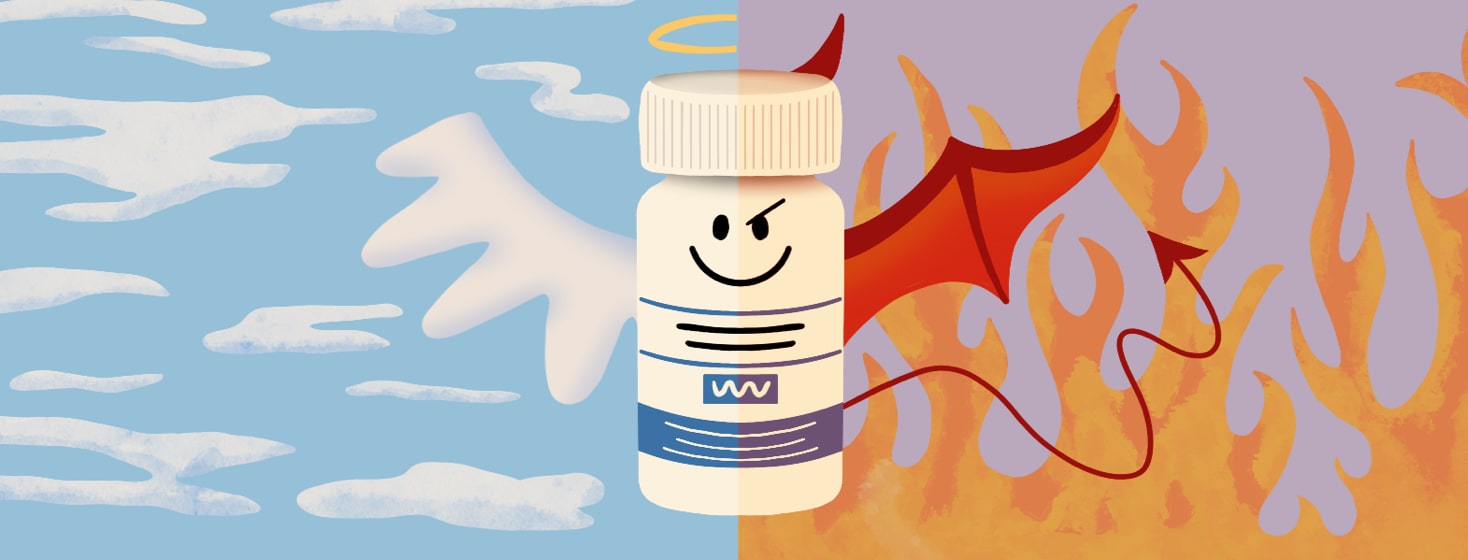NSAIDs & IBS: A Dangerous Combination
This past week, I had a very bad IBS-D flare one night that I hadn't had in quite a while. It didn't take me too long to put two and two together and chalk it up to the fact that that week I had taken quite a bit of ibuprofen (relatively speaking as I try not to take ibuprofen or other NSAIDs).
What are NSAIDs?
Ibuprofen is categorized under a class of drugs known as NSAIDs, which stands for Non-Steroidal Anti-Inflammatory Drugs. In addition to ibuprofen, NSAIDs also include Naproxen (usually known under the brand name, Aleve), diclofenac, and even aspirin. Unfortunately, these drugs can instigate GI symptoms in IBS patients (or some researchers posit, even contribute to the development of IBS itself).
Research on NSAIDs and IBS
One analysis of other studies, published in 2012, looked at 287 IBS patients, and noted that "Medications that may alter intestinal homeostasis such as NSAIDs...were more frequently used in IBS patients compared to controls."1 The problem, I'm guessing, is that IBS causes pain, or in other situations, those who have IBS also tend to have other diseases and disorders that cause pain, and NSAIDs are usually the first-line treatment for pain.
As much as I'd like to quit all NSAIDs for good, my chronic pain, which can flare to unbearable levels at times, makes that impossible for now.
Dealing with the pain of IBS and endometriosis
In addition to having IBS, I have endometriosis, which means my periods are often extremely painful (and to boot, I often get something known as menstrual migraines, which are not fun at all). NSAIDs are usually the only thing that can curb the pain of my killer menstrual cramps as I've tried most other things.
I used to take Naproxen for my endo pain, but I noticed it seems to cause me a lot of stomach problems and gastrointestinal distress, so I stopped. A single pill of over-the-counter ibuprofen does not seem to last as long in curbing pain and is not as strong as a single Naproxen pill, but at least for me, it also does not aggravate my IBS and GERD issues as badly as Naproxen. Yet, I do want to underscore the word "as" as ibuprofen can still cause issues, especially if I take too much or do not eat an IBS-friendly diet while I am taking it.
How to decrease the chance of an IBS flare on NSAIDs
When I take ibuprofen or any other NSAIDs, I always stick to these rules to minimize the chances of an IBS flare:
- ALWAYS take with food. Taking NSAIDs on an empty stomach can even cause issues for those without digestive disorders and may even instigate stomach bleeding.
- Stick to an IBS-friendly diet even more so while on NSAIDs. Even if it's just a banana or a protein bar, having something in your stomach will buffer the drugs. This means for me no fatty or spicy foods, no alcohol, and no caffeine.
- Take the minimum of what you need to manage the pain. Many times I only take one ibuprofen at a time, sometimes I will take two, but only when the pain is extreme. I try to stay within 4-5 pills a day maximum only on the first and second days of my period (when the pain is the worst). As soon as those days are over, I stop taking the NSAIDs altogether.
- Read the label on the bottle of your NSAIDs and be very careful not to exceed the daily dose.
- Consider other oral alternatives to NSAIDs. I sometimes will take Acetaminophen (Tylenol) either on its own or one of it with one ibuprofen to cut down on my NSAIDs. Usually, Acetaminophen is not as great on its own for pain for me, but taking one of it with one NSAID can help. While Acetaminophen is not supposed to cause the same level of stomach issues NSAIDs do, too much can harm the liver (as with many drugs, but Tylenol in particular), so keep it to a minimum as well and I would still advise taking with food. For me, sometimes a muscle relaxant in the evening is better for my spastic pain than NSAIDs, so I will opt for them.
- Consider topical ointments, heat, TNS units, etc. My doctor prescribed me a topical form of diclofenac, that I can rub into the painful areas of my body and do not cause me the same stomach issues as oral NSAIDs. I also use other topical remedies, like CBD ointments, Tiger Balm, lidocaine patches, Arnica oil, heating pads or cold packs, or my TNS unit, to curb my pain. Many times, these can work well enough on their own. If they fail, then I may opt to NSAIDs.
My hope is that after my surgery at the end of this year, I will be able to mostly quite NSAIDs except on very rare occasions. How about you? Do you find NSAIDs bother your IBS? Do you use other alternatives and with what success? Please feel free to share your experiences in the comments below!

Join the conversation